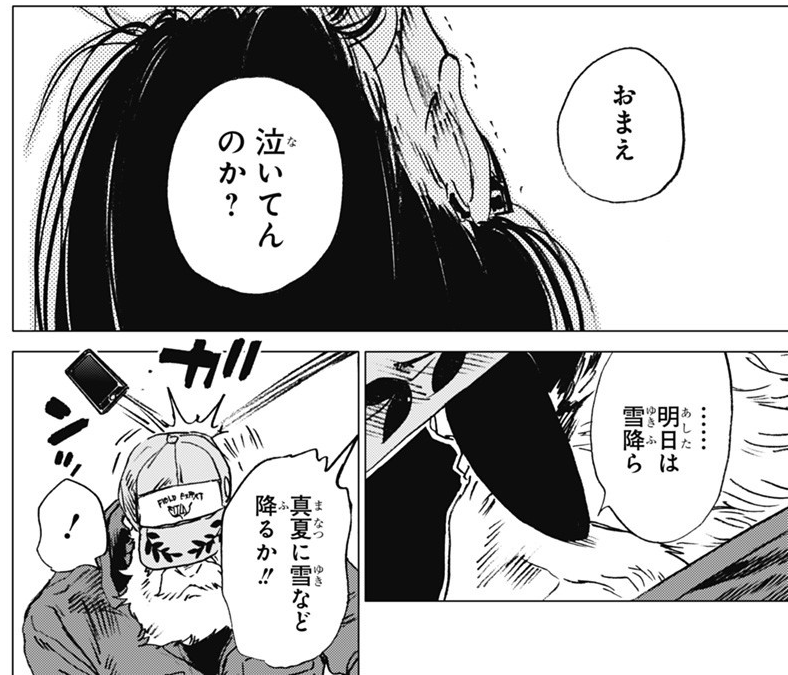I was reading the manga サマータイムレンダ and was wondering what the "ら" in "明日は雪降ら" mean and come from, most of the characters are speaking 関西弁 so my main theory was to think that it's just a way to say the る in an island dialect but then i realized that the character saying it is also an old man so it could also just be part of an old way of speaking the language, does anyone know more about this ? 
-
1On mobile but I believe this has been answered before, it's る and sentence end particle わ slurred together– AngelosCommented Aug 16, 2022 at 17:54
-
1It seems the characters in this manga are supposed to be speaking 和歌山弁 (or 紀州弁). While 和歌山 is certainly a part of 関西, the dialect is quite distinct. That ending is definitely not a standard feature of 関西弁.– aguijonazoCommented Aug 17, 2022 at 2:23
2 Answers
I'm not sure of the exact grammar, but aguijonazo's comment suggests that the following is relevant
([動・終]~す)ら(ー)(よー)
~するだろう、~しようと思う 例「わえが運転すらー」=「私が運転しよう」 Weblio和歌山弁辞書
There was also the following from here
③勧誘するときに使う「ら」 語尾に「ら」を使うのも和歌山弁の方言の特徴といえます。例えば「ドライブしよう」を「ドライブしよら」や「私たち」を「わたしら」といったように
ら means similar to the standard う・よう, meaning will, let's. So 雨降ら = 雨が降るだろう = it will rain.
It looks to me like a smartphone hit the old man before he finishes to say a full sentense such as "明日は雪降らんぞ."
UPDATE: Chololate kindly instructed me about the context. "明日は雪降ら" must be a colloquially shortened version of "明日は雪降らあ" which adds an exclamatory tone to "明日は雪が降る," expressing his surprise to see something which would never happen (明日は雪が降るわ>明日は雪降るわ>明日は雪降らあ). Angelo's comment already describes it.
-
-
@Chocolate Yes. Alternatively "雪は降らないぞ." Thanks for clarification.– RyoCommented Aug 19, 2022 at 17:21
-
-
文脈が不明なので断定できませんが、スノースポーツ(?)ができずに泣く若者>泣いたところで明日雪は降らないと諭す老人>そんなこと言われなくても分かっている、と老人が言い終えるのを待たずキレる若者、と解釈すれば辻褄が合います。– RyoCommented Aug 20, 2022 at 14:05
-
文脈はこちらです: books.google.co.jp/… スノースポーツは関係ないです。泣くようなキャラじゃない「ひづる」(女性です)が泣いてるから、根津が「明日は雪が降るだろう」って言ってるんですね。– chocolate ♦Commented Aug 20, 2022 at 14:21
